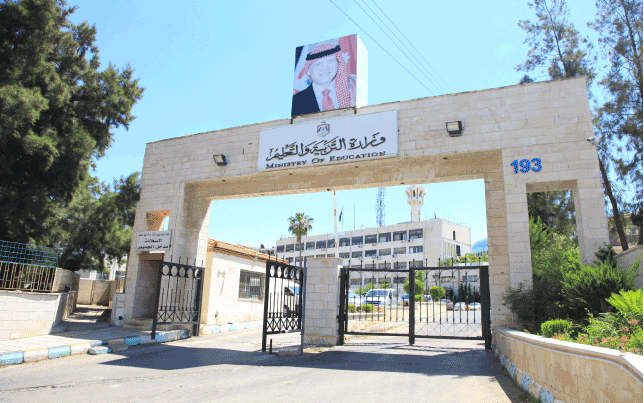AMMAN — The Ministry of Education will begin implementing its plan to construct 30 inclusive schools for children with disabilities in 2023, according to Director of the International Buildings and Projects Department at the Ministry of Education Ibrahim Samamah.
The project, funded by the US Agency for International Development (USAID), also involves constructing 30 accessible buildings for schools which operate in rented spaces that “don’t provide students with a proper educational environment”, he told Al Mamlaka TV last Wednesday.
There are roughly 770 public schools with rented buildings, in which 127,351 students are enrolled, according to Samamah.
The construction of the first six inclusive schools will begin between February and May of 2023 in Zarqa, Irbid and Amman, he said, adding that persons with disabilities (PWD) will make up 11 per cent of the total number of students in each one.
He also noted that tenders for the building of 12 more schools across the Kingdom’s various regions will be announced next May.
Once the project is completed in 2025, 15 inclusive schools will be established in the Kingdom’s central region, 12 in its northern region and three in its southern region, Samamah said.
He added that the locations were selected by a “specialised” committee that factored in its decision overcrowding in classrooms and prioritised areas with double-shift schools.
In an Interview with The Jordan Times, the Higher Council for the Rights of Persons with Disabilities (HCD) Spokesperson Rafat Zitawi noted the educational staff at these schools will have the needed training to provide this category of students with quality education.
The staff will also include shadow teachers that provide one to one support for students with special educational needs, he added.
Aside from technical and training aspects, the HCD will support the ministry throughout the project by covering the salaries of shadow teachers during the first year, according to Zitawi.
Moreover, “the national curricula will be adapted to the needs of students with disabilities, and their peers as well as teachers will undergo awareness-raising and training sessions on acceptance and inclusivity”, he said.
Zitawi also pointed out that the 2015 General Population and Housing Census shows that around 11 per cent of the total population in Jordan aged 5 and above have disabilities.
However, “the overwhelming majority of people with disabilities, 79 per cent, of school age don’t receive any form of education”, he said.
The Law on the Rights of Persons with Disabilities No. 20 for the year 2017 expressly prohibits discrimination on the basis of disability and protects people with disabilities’ right to inclusive education.
This means that the ministry is required to provide people with disabilities with accessible buildings and curricula in addition to the needed assistive tools and well-trained teachers, Zitawi said.
“This of course can’t be achieved overnight, which is why the Ministry of Education and the HCD are committed to the 10-Year Strategy for Inclusive Education, launched in 2020,” he added.
The plan focuses on raising public awareness, building the capacity of human resources and carrying out infrastructural adjustments at existing schools, according to Zitawi.
He noted that an inclusive education is necessary to removing all forms of discrimination and stigmas attached to disabilities as well as increasing “tolerance and acceptance” of individual differences.
It also promotes the emotional and psychological development of children with disabilities, allows them to form social connections in diverse environments and increases their likeliness to enjoy higher employment and income rates, he added.
Anas Shtiwi, a gender and social inclusion adviser, noted that ensuring accessible education required a “multitrack approach” that goes beyond addressing environmental barriers, such as the lack of ramps and push buttons or accessible bathroom stalls.
“Small things such as the type or height of a door handle or whether the door itself opens inwards or outwards can impact a disabled child’s sense of independence and level of accessibility to education,” he told The Jordan Times.
However, the construction of inclusive schools should also address the perceptions and behaviours of the educational and administrative staff in addition to non-disabled peers to ensure that they embrace differences and accept persons with disabilities as part of human diversity, he said.
“Building the capacities of service providers following a human-rights-based approach ensures that persons with disabilities, who differ in the needs they require to access the universal right to education, are treated as equals to their non-disabled peers,” Shtiwi added.
“Persons with disabilities don’t require pity or sympathy, which are forms of discrimination, but a fair and rightful chance to thrive and lead full, independent lives,” he continued.
Shtiwi also stressed the need to ensure the effective participation of persons with disabilities and strategically engage them in decision making processes as more than just service recipients.
